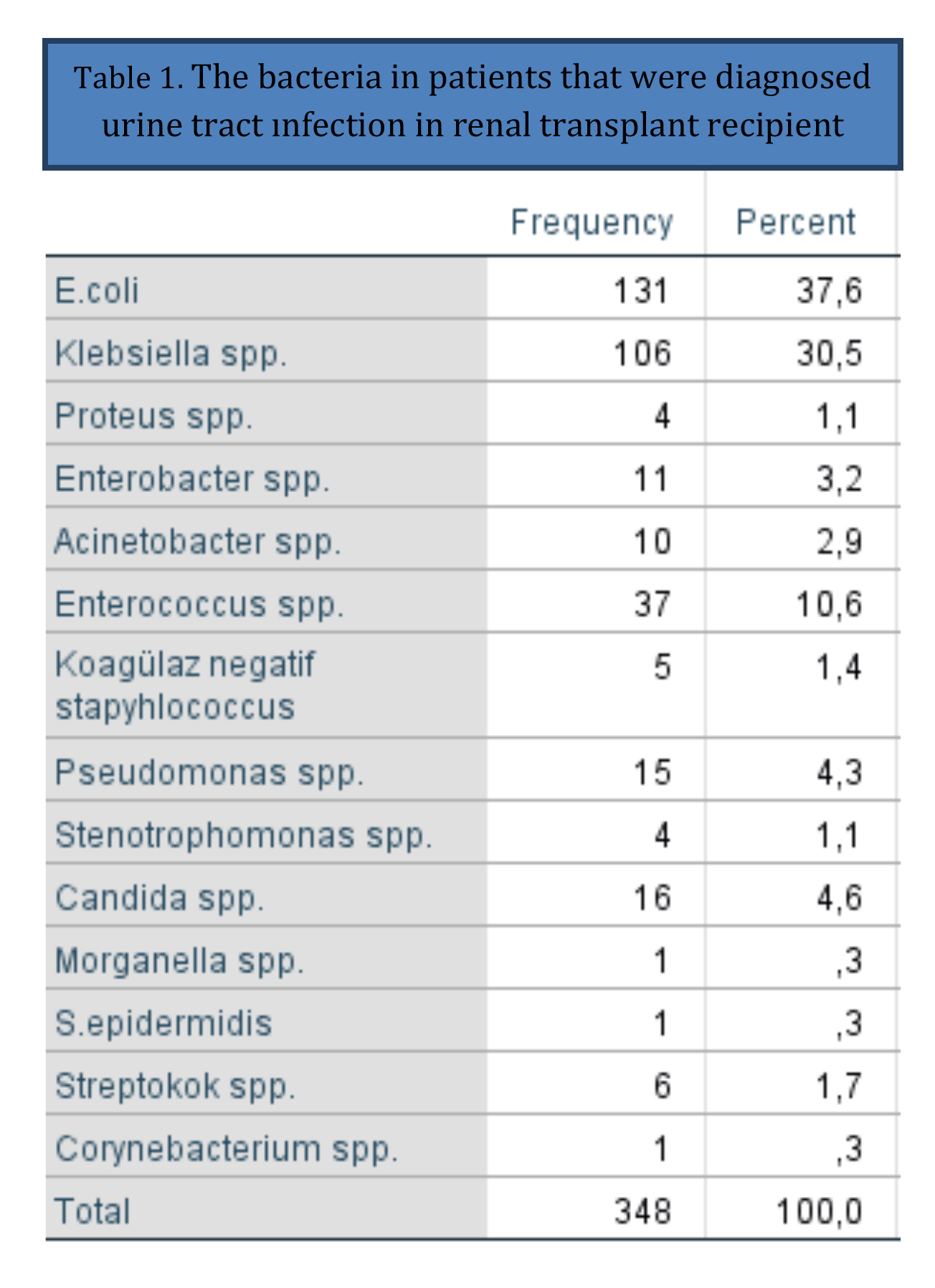Urinary tract infections in renal transplant recipients in three years
Nuran Sari1, Cigdem Erol1, Tugba Yanik Yalcin1, Hande Arslan1, Mehmet A. Haberal2.
1Infectious Diseases, Baskent University, Ankara, Turkey; 2Transplantation, Baskent University, Ankara, Turkey
Introduction: Urinary tract infection (UTI) is the most common infectious complication seen after renal transplantation. Emergening antibiotic resistance particularly in gram negative enteric bacilli is a great concern for the management of these infections.
Objective: In our study , the bacteria isolated from patients that were diagnosed as urinary tract ınfection (UTI) are evaluated.
Patients and Methods: We evaluated 348 UTI episodes of 139 renal transplant recipients from December 2016 to December 2019 at Baskent University Ankara Hospital. For this purpose medical reports of the patients were reviewed retrospectively. The resistance patterns are defined as ESBL positivity (Extended-spectrum beta-lactamase identified, bacteria resistant to betalactam antibiotics, except carbapenem), MDR (bacteria rezistans three and more antimicrobial groups), PDR (bacteria resistant to all groups that can be tested).
Results: In the study period 139 renal transplant recipients had 348 bacterial UTI episodes. 79 (56,83 %) patients were female and 60 (43,16%) were male. The median age was 49,78 (minimum 18, maximum 68). Fifty (14.36%) isolated bacteria were gram positive, 16 (14,6 %) candida spp. and 282 (81,03 %) were gram negative (table 1). Thirty-seven patients (10,6%) had concomitanat blood culture positivity.
Escherichia coli was the predominant bacteria with a ratio of 46,5 % all gram negative pathogens. When was evaluate the resistance of gram negative bacteria that extended-spectrum beta-lactamase (ESBL) were 73 (55,7 %) in Escherichia coli (multidrug rezistans=MDR ratio 48,1%, pandrug rezistans=PDR ratio 0 %), 59 (56 %) in Klebsiella spp. (MDR ratio 47%, PDR ratio 4,5%).

Conclusion:
1-Difficult-to-treat infections due to ESBL and MDR pathogens are increasing among renal transplant recipients.
2-Empirical antibiotic therapy should be guided by local antimicrobial resistance data
3-Antimicrobial stewardship programmes are of pivotal importance for the management and prevention of MDR pathogens
4-Infections caused by extended-spectrum beta-lactamase (ESBL) producing Escherichia coli and Klebsiella spp. constitute severe problems. Carbapenems are commonly used to treat these infections. However, infections caused by carbapenem-resistant gram-negative bacteria show an increasing trend recently.
There are no comments yet...